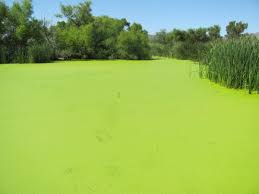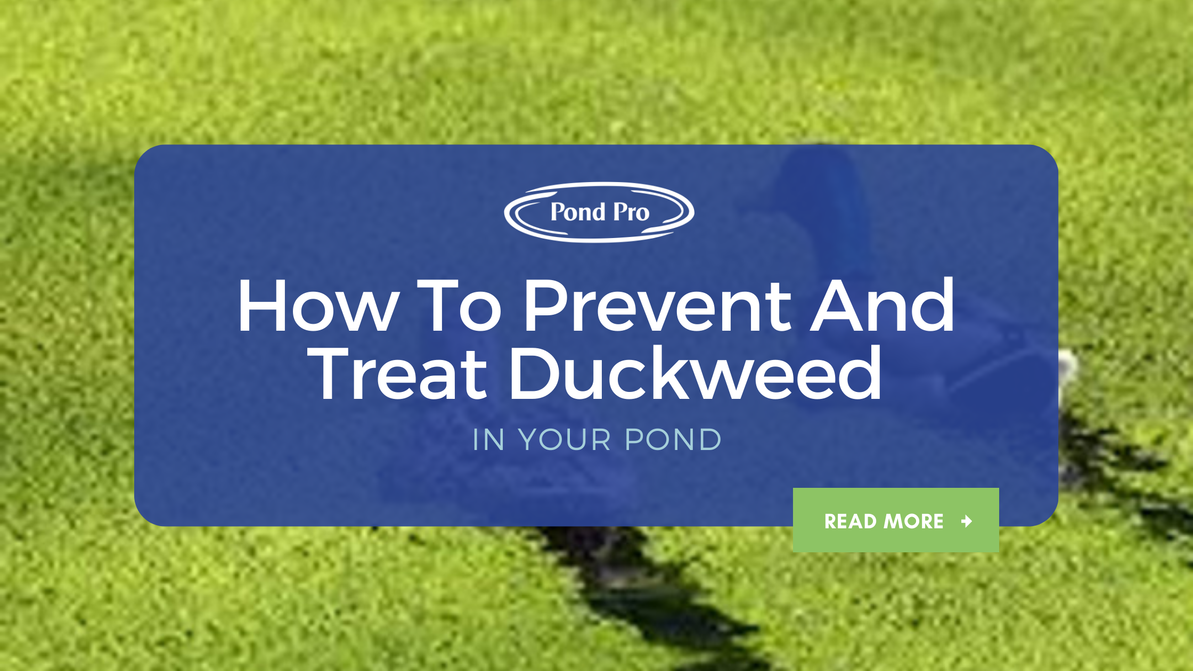How to Prevent and Treat Duckweed in Your Pond
Tackling Duckweed – Treatment & Prevention

We’ve all seen it – a beautiful pond quickly taken over by duckweed. What starts as a few blooms on the shoreline quickly covers the whole pond. This quick growth leaves many people at a loss as to how to get rid of it for good.
The best way to treat duckweed is to prevent it! With ongoing pond maintenance, duckweed growth can be limited and controlled.
Duckweed is a flowering aquatic plant that consists of small oval leaves. It is unique among other Canadian aquatic plants & algae in that it can only be killed by the pesticide Reward. While this can seem like a solution, it is a band-aid solution as the duckweed will be back. Our experts have over 20 years experience dealing with duckweed and are happy to share their expertise
Prevention
- Aeration is the key to preventing duckweed as it keeps water moving. It also reduces the phosphates available that duckweed thrives on.
- Pond maintenance plans including a good bacteria such as NaturalClear Pond Bacteria is the most important supplement as this good bacteria eats up dead duckweed and vegetation, while also reducing the nutrients available for duckweed to grow.
- Darkening the water with pond dye is another way to limit duckweed as it blocks the sunlight the duckweed requires to grow. Pond Pro pond dyes are extremely safe and can be added to your pond at any quantity – the darker the better to prevent duckweed and other growth
Treatment
If you already have duckweed, it can be treated. Ideally, it should be removed from the pond. Weed Rakers are a great tool to make this tedious task easy! Weed Rakers can be modified with a pool noodle as seen in this video, making duck weed removal simple! If possible, wait until a windy day as all duckweed will get pushed to one edge of the pond, making removal even easier.
Once duckweed is removed, prevention maintenance as discussed above should be started.
Duckweed can seem overwhelming, however it can be tackled. Even if your pond is covered in duckweed, once it is removed, prevention and pond management can ensure it does not take over your pond again.
Recent Posts
-
Top Gift Ideas for Pond Owners: Practical, Fun & Perfect for Any Season
With the holiday season quickly approaching, it’s the perfect time to start thinking about meaningfu …4th Dec 2025 -
De-Icing System Sizing Guide: How to Pick the Right System for Your Pond or Dock
Learn how to size, install, and position a pond or dock de-icer for cold climates. Protect your fish …28th Nov 2025 -
Winter Survival Guide for Pond Fish
Winter Survival Guide for Pond Fish How to keep your fish healthy, oxygenated, and stress-free all w …18th Nov 2025




